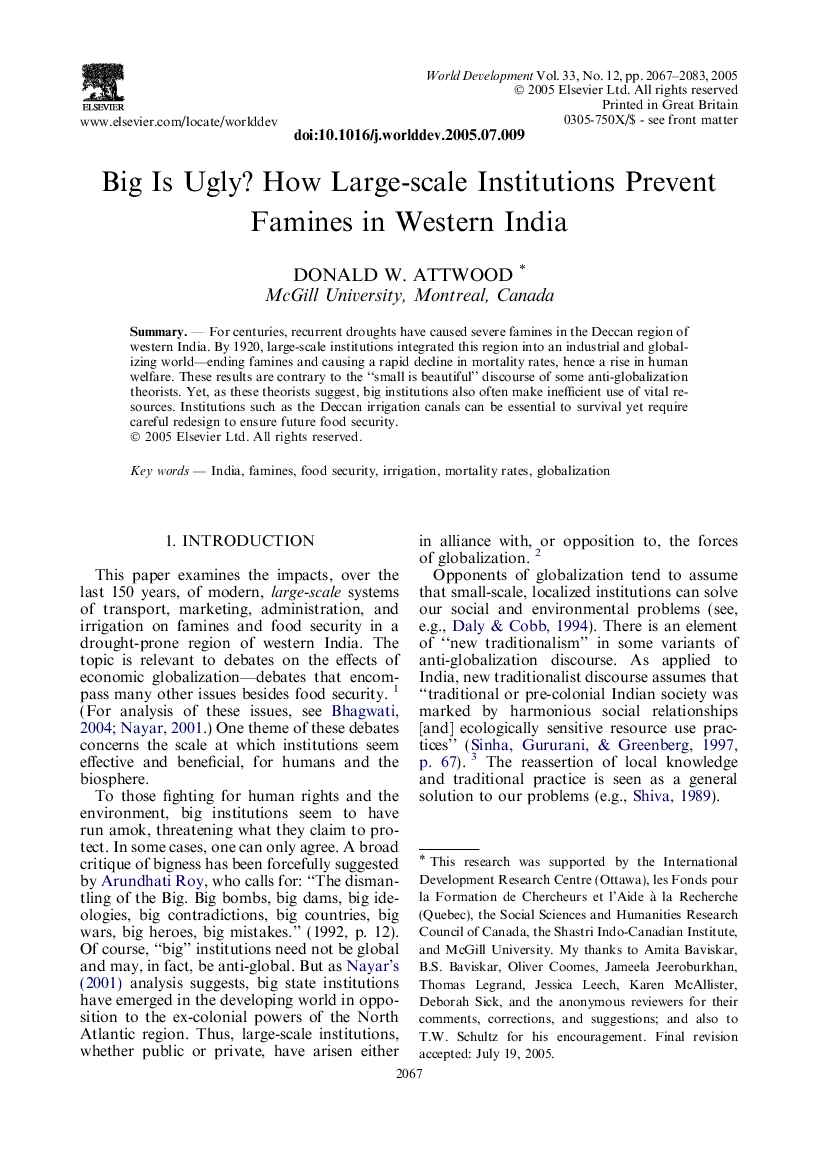| Article ID | Journal | Published Year | Pages | File Type |
|---|---|---|---|---|
| 992638 | World Development | 2005 | 17 Pages |
Abstract
SummaryFor centuries, recurrent droughts have caused severe famines in the Deccan region of western India. By 1920, large-scale institutions integrated this region into an industrial and globalizing world—ending famines and causing a rapid decline in mortality rates, hence a rise in human welfare. These results are contrary to the “small is beautiful” discourse of some anti-globalization theorists. Yet, as these theorists suggest, big institutions also often make inefficient use of vital resources. Institutions such as the Deccan irrigation canals can be essential to survival yet require careful redesign to ensure future food security.
Related Topics
Social Sciences and Humanities
Economics, Econometrics and Finance
Economics and Econometrics
Authors
Donald W. Attwood,
